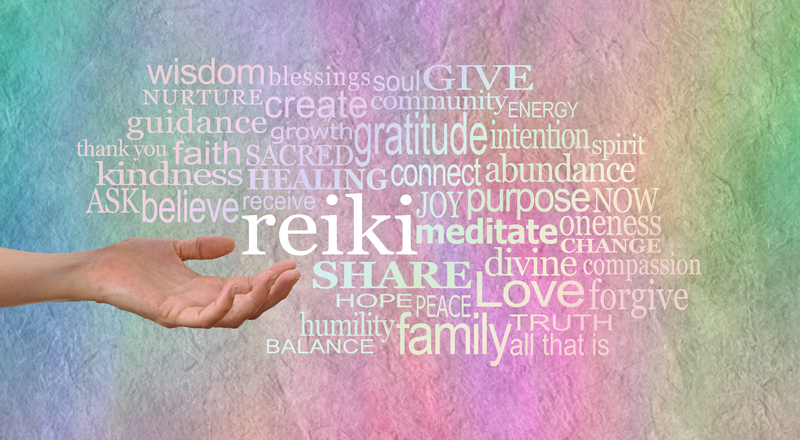Do you ever feel like your spiritual life is running empty?
If so, it may be time to recharge and refresh with the art of spiritual sleep. Spiritual sleep isn’t just about getting a good night’s rest – it is an opportunity for personal transformation, allowing practitioners to harness the power of relaxation and meditation simultaneously. In this blog post we will explore how mastering the art of spiritual sleeping can provide maximum renewal, giving renewed energy and clarity to your entire being: body, mind, and soul.
What is Spiritual Sleep, and How Can it Benefit Our Lives?
Spiritual sleep is a concept used to describe the spiritual practice of engaging in restorative and intentional sleeping. This practice is based on the belief that a person’s energy is replenished during sleep and that sleeping can be used as a way to connect with our spiritual selves. Spiritual sleep encourages us to set aside time for relaxation and reflection, allowing us to access inner wisdom and gain insight into ourselves. During spiritual sleep, it is believed that we are able to access our subconscious mind better in order to discover greater truths about life.
The benefits of spiritual sleep are numerous. By taking the time to reflect on our values, feelings, and beliefs while in a relaxed state, we can make important decisions that will benefit our lives. We may find clarity regarding what actions or changes we should make in order to create more peace in our lives. Additionally, spiritual sleep can provide us with much-needed nourishment for our body, mind, and spirit. By making sure we are getting enough restful hours of sleep each night, we can ensure that our bodies stay healthy and strong. Furthermore, engaging in this kind of self-care offers an opportunity for personal growth and renewal which can lead to improved overall well-being.
Finally, spiritual sleep helps us develop an attitude of gratitude which allows us to appreciate life more fully. As we become increasingly aware of the positive aspects of life around us, we can become more content with where we are at in the present moment. Overall, spiritual sleep is an incredibly powerful tool for promoting greater levels of happiness and satisfaction within ourselves and others around us.
Benefits of Spiritual Sleep for Body, Mind, and Soul
Spiritual sleep is an excellent way to promote both physical and spiritual wellbeing. During spiritual sleep, the body enters a deep state of relaxation, allowing it to restore and rejuvenate itself. This can lead to improved physical health, such as increased energy levels and better muscle tone.
On a mental level, spiritual sleep helps reduce stress and anxiety, while also providing clarity and focus. By calming the mind, it allows us to gain insight into our lives and make better decisions.
On a spiritual level, spiritual sleep offers us the opportunity for deeper connection with our higher power. It gives us a chance to tap into our inner wisdom and discover our true purpose in life. By connecting to this higher source of knowledge, we can gain a greater understanding of ourselves and the world around us. Ultimately, spiritual sleep provides numerous benefits for the body, mind, and soul. Not only does it help improve overall physical health but it also gives us greater access to our inner wisdom which can help guide us towards living a more fulfilling life.

a. Improved Quality of Sleep
Sleep is an important component of a healthy lifestyle and poor quality of sleep can have a negative impact on your daily life. Improving the quality of your sleep can have a lasting positive effect on your overall wellbeing. Quality of sleep is affected by factors such as stress, diet, and environment. Stress can cause feelings of anxiety, which can disrupt sleep patterns and lead to insomnia or sleeping too little.
Eating unhealthy foods late at night, such as sugary snacks or caffeinated beverages, can cause interrupted sleeping patterns and make it hard to fall asleep. Additionally, having a comfortable bedroom environment that is conducive for sleeping is also important. This includes using comfortable bedding and keeping the room dark and at a cool temperature.
There are several lifestyle changes you can make to improve the quality of your sleep such as reducing stress levels, avoiding caffeine later in the day, and engaging in relaxing activities before going to bed like reading or taking a bath. Reducing stress levels may require implementing some form of relaxation technique like yoga or meditation into your daily routine.
Avoiding caffeine after dinner or late in the evening is recommended since it has been shown to interfere with natural melatonin production which helps promote deep sleep. Finally, engaging in calming activities like reading or taking a warm bath before bedtime can help relax muscles and put your mind in a more relaxed state which helps induce better quality of sleep.
Making small changes to your lifestyle with regards to diet, stress levels, and environment are all things that you can do to help improve the quality of your sleep over time. When combined together these small changes have the potential to have large benefits both short term and long term when it comes to getting better quality rest each night which will ultimately help improve your overall wellbeing.
b. Increased Energy Levels
One of the most remarkable developments in recent times is the increase in energy levels that many people are now experiencing. This has been attributed to a variety of factors, including diet and exercise, but also to improved lifestyle habits such as getting more sleep and reducing stress. As a result, an individual’s energy level can greatly improve with just minor lifestyle adjustments.
When we talk about energy levels, it is important to distinguish between physical and mental energy. Physical energy refers to the amount of power available for tasks such as lifting weights or running a mile.
Mental energy, on the other hand, refers to the capacity for tasks such as remembering information or maintaining focus over long periods of time. Fortunately, both forms can be improved through simple lifestyle changes that involve healthy eating habits, regular exercise and adequate sleep.
For those looking for an extra boost in their energy levels, there are also certain supplements available on the market that can help promote endurance and stamina. These include things like caffeine tablets or drinks which can give you an immediate hit of alertness and focus without any long-term harm to your health. Additionally, herbal remedies such as ginseng have been known to provide natural boosts in physical and mental performance when taken regularly over time.
Finally, it is worth noting that increased energy levels are not just beneficial for physical activities; they can also help increase productivity at work or school by giving us the mental clarity needed to stay focused on our tasks throughout the day. Taking small steps towards a healthier lifestyle will significantly improve your overall well-being and provide you with more sustained energy when needed!
c. Improved Mental Clarity and Focus
Improved Mental Clarity and Focus is a state of mind that can enhance productivity and creativity. It can help you create more successful projects and use your time to its fullest potential. Improved mental clarity and focus can be achieved by identifying what distracts you, such as media or conversations, and learning to stay focused on the task at hand.
Creating a peaceful space to work in can also help boost your concentration levels. Additionally, taking breaks throughout the day can ensure that you don’t become overwhelmed or overexerted. Finally, it’s important to make sure you’re getting enough sleep each night so that you’re mentally alert when it’s time to work. By following these tips, improved mental clarity and focus will become second nature in no time at all!
d. Enhanced Emotional Wellbeing
Enhanced emotional wellbeing is a term used to describe the feeling of greater mental and physical well-being that can be achieved through various methods. It involves becoming more aware of your own emotional state, developing healthy coping strategies for dealing with difficult situations, and learning how to take care of yourself mentally and physically.
Enhanced emotional wellbeing does not mean achieving perfect happiness all the time, but rather finding ways to cope better with life’s ups and downs and making sure that you are consistently taking care of yourself.
One way to improve your emotional wellbeing is by taking regular breaks from stressors in your life – this might include taking a day off from work or dedicating some time each week to do something enjoyable. It can also involve setting boundaries in relationships so that you are not overburdened. Taking up mindfulness practices such as yoga, meditation or journaling can help you become more aware of what you’re feeling and thinking, allowing you to better manage difficult emotions when they arise.
Eating healthy meals and getting enough sleep are also important components of enhanced emotional wellbeing – these activities provide the body with energy and rest needed for optimal functioning. Finally, talking about how you’re feeling with supportive friends or family members can be a great way to ease stress and keep your mental health in check.
Ultimately, enhanced emotional wellbeing is about recognizing that emotions are an important part of our lives, understanding how they affect us, and creating habits that allow us to best manage them on an ongoing basis. Taking steps towards improved emotional wellbeing will not only make it easier for you to handle life’s challenges but may also improve other areas such as physical health, relationships or job performance.
e. Heightened Sense of Spirituality
The heightened sense of spirituality that many people are experiencing during the pandemic is a sign of collective consciousness. On an individual level, it can manifest as a greater appreciation for life and the natural world, a desire to reconnect with our inner core, or the pursuit of faith and spiritual practices.
At the same time, we’re seeing an increase in compassionate action and global awareness—people coming together to tackle tough issues like climate change and income inequality. This suggests that we may be on the brink of a new era in which our collective values are shifting away from materialism towards greater compassion and empathy.
This shift isn’t surprising given what we’ve endured over the past year—a devastating pandemic that has forced us to confront mortality and question our place in the universe. In response to this crisis, many have found solace in meditation, prayer, or other spiritual practices. Others have sought out nature for comfort and healing. And still, others have sought to build meaningful connections with family and friends despite physical distancing. All these activities help us find peace amid uncertain times and connect us with something bigger than ourselves.
It’s also worth noting that this shift towards greater spirituality isn’t restricted to any one faith or religious tradition; rather it is being experienced across all beliefs systems as people search for ways to make sense of their lives during this difficult period.
Whether it’s through yoga, mindfulness or simply taking time each day to be still—we’re all striving to tap into our inner wisdom so we can better navigate these turbulent times. In doing so, we lay down foundations for more meaningful relationships with ourselves and those around us—a process that could transform how we live in profound ways going forward.

Practical Tips for Getting Started with Spiritual Sleep
Getting started with spiritual sleep is not just an easy task, but one that can be very rewarding in the long run. Spiritual sleep is a time when you focus on rest and relaxation while connecting to your spiritual awareness and higher self. It can be a great way to connect with yourself, get clarity and receive divine guidance. To get started with this practice, here are some practical tips you may want to consider:
First, set the intention for spiritual sleep. You can do this by sitting in a comfortable position and taking a few deep breaths. Spend some time visualizing how you want your spiritual sleep experience to look like, and affirm it by saying something such as “I am now ready for my spiritual sleep” or “I now open my heart and mind to receive divine guidance”.
Setting the intention will help focus your energies towards achieving the goal of having a peaceful night’s rest that deepens your connection with your spiritual awareness.
Next, create a calming and cozy atmosphere in which you feel safe and relaxed. Make sure everything in the room is arranged in such a way that it encourages relaxation rather than distraction. This could include dimming the lights if necessary, playing soft music or even lighting some candles or incense to create an environment that allows for more focused meditation.
Finally, take some time before going to bed to meditate on what it means for you to connect spiritually with yourself in this moment. Think about what kind of questions or topics are important for you right now so that when engaging in spiritual sleep, you will be able to access those answers more easily during dreamtime. Also remember that spiritual sleep doesn’t always have an immediate answer; sometimes all we need is just time for ourselves away from all distractions so that our minds have space to wander and explore different possibilities within us.
By incorporating these practises into our nightly routine we can enjoy deeper rest while also getting closer with our true selves and connecting with whatever divine guidance awaits us during dream time!
a. Establish a Relaxing Nighttime Routine
Creating a relaxing nighttime routine is essential for ensuring a good night’s sleep and feeling rested the next day. Taking some time to unwind and relax before bed can help reduce stress and allow your mind to calm down. A good nighttime routine should start an hour before bedtime, when you turn off screens, close out of any work-related tabs, and cease all physical activity.
From there, it’s important to take some time for yourself- whether that be reading a book, doing some stretching or yoga poses, or even just listening to calming music. You could also use this time for journaling or meditating if you find those activities helpful for calming your mind.
Finally, when it’s time for bed, make sure your bedroom is dark and comfortable with a cool temperature. If you have trouble sleeping at night due to anxiety or stress, try using lavender and chamomile essential oils in your oil diffuser- these oils have natural calming properties and can help ease any racing thoughts in your head. Finally, make sure to use the same consistent routine every night- this will help train your body to know when it’s time for sleep each evening!
b. Set an Intention for your Sleep Session
When it comes to getting a good night’s sleep, setting an intention for your sleep session is an important step. An intention can be thought of as a goal or purpose that you set for yourself before going to bed. It can be something simple like vowing to get at least seven hours of sleep, or something more specific such as setting an intention to wake up feeling refreshed and energized.
The idea behind setting intentions is to create an atmosphere of positivity and motivation around the act of sleeping, which can help you relax and fall asleep easier. Additionally, having a clear goal in mind when you go to bed can help ensure that you are getting the restful sleep that your body needs. Intention-setting is especially useful if you suffer from insomnia or other sleep disorders, because having a positive target gives your mind something to focus on rather than worrying about being unable to fall asleep.
Finally, setting an intention for your sleep session can also be helpful in establishing healthy habits when it comes to getting enough rest each night.
At the end of the day, no matter what kind of intention you choose to set for yourself before bedtime, make sure that it works with your lifestyle and whatever situation you’re dealing with. Don’t forget that while having goals and aspirations are great motivators, sometimes taking a break from striving for a specific outcome is just as essential for achieving optimal rest.
So instead of focusing on what needs improvement during your next sleep session, consider simply allowing yourself some much-deserved rest and relaxation without any extra pressure or expectations!
c. Choose Appropriate Music or Podcasts to Help you Drift Off to Sleep
When it comes to helping you drift off to sleep, one of the best ways is by listening to music or a podcast. Music and podcasts can help to relax your mind and body, giving you the peace and comfort necessary for a restful sleep. Music has been proven to have a soothing effect on both your physical and mental states, reducing stress levels, calming your heart rate and lowering blood pressure. Some people even find that playing background music helps them fall asleep more quickly than without any sound at all.
For those struggling with getting a good night’s sleep, numerous podcasts are available that may help you drift off to dreamland. Additionally, instrumental music like classical or jazz is also an excellent option for soothing away the troubles of the day before bedtime as it lacks lyrics which could be distracting while trying to fall asleep.
No matter what type of music or podcast you prefer, many options can help you get the restful sleep your body needs each night. Listening to something calming and comforting before bed can significantly affect how quickly you fall asleep each night so don’t hesitate to give it a try!
d. Incorporate Meditation into your Bedtime Routine
Meditation is a powerful tool for stress relief and relaxation. Incorporating into your bedtime routine can help you let go of the day’s stresses and worries so that you can drift off to sleep more easily. It can also help you to relax your body and clear your mind in preparation for a restful night’s sleep. Before getting into bed, take 15-20 minutes to practice mindful meditation.
This might involve sitting up in bed or on the floor with your legs crossed and lighting some candles or incense for an extra calming effect. Then, focus your attention on your breathing: inhaling through the nose deeply and slowly, feeling the air travel down through each part of your body; then exhaling out of the mouth slowly and completely, allowing all tension to leave with each breath.
As thoughts come up during the meditation session, acknowledge them without judgment or attachment before returning to the focus on your breath. Doing this regularly before bed will help you to create an inner calmness and peace that will carry over into sleep.

e Develop a Bedtime Ritual You Can Stick With Over Time
A bedtime ritual is important in establishing a healthy sleep pattern that can lead to better overall health and wellbeing. A bedtime ritual helps you wind down from the day, relax, and prepare for a good night’s sleep. It also gives your body and mind the time to transition from being alert to being in a relaxed state of rest. The key to creating a successful nighttime routine is to find activities that help you relax and unwind before bed.
Common components of bedtime rituals include reading a book or magazine, journaling about your day, taking a warm bath or shower, practicing relaxation techniques such as deep breathing or progressive muscle relaxation, listening to soothing music, stretching or yoga, writing down tomorrow’s tasks so you don’t have to think about them before going to sleep, dimming the lights in the room, and setting aside electronic devices at least an hour before bedtime.
You may also want to incorporate aromatherapy into your routine by using essential oils like lavender, known for its calming properties.
It is important to stick with the same routine every night so that your body knows it’s time for rest. Of course it’s ok if you miss a few nights here and there but generally speaking consistency is key when trying to form any kind of habit. Aim for 30-60 minutes before lights out each night but realize that different people have different needs so adjust your bedtime ritual according to what works best for you.
If you are having trouble sticking with it try setting reminders on your phone or putting post-it notes around your bedroom as visual cues that it’s time for bed!
Spiritual Benefits of Sleeping on the floor?
Ok, this probably sounds super weird, but hear me out.
Sleeping on the floor can provide several spiritual benefits. Many people practice yoga and meditation, which require having a flat surface to work on. By sleeping on the floor, it is easier to create this space and access these practices in a more comfortable manner.
Additionally, sleeping on the floor gives your body an opportunity to realign itself; as your body is not confined by a mattress or bed frame, it is free to take its natural shape with out external restriction.
This can help soothe physical ailments such as back pain or muscle tension that are obstructed by conventional beds. Moreover, sleeping on the floor brings us closer to nature. The connection we have with our environment can be strengthened when we engage in activities that root us into our surroundings, like sleeping without a mattress.
Being “grounded” in this way allows us to seek clarity of mind and open ourselves up to positive energy being transferred from the Earth into our bodies. Thus, taking time away from modern amenities known for hindering mental and spiritual growth can be beneficial for one’s health and well-being overall.
Restoring Balance with Spiritual Sleep
The art of spiritual sleeping is a powerful practice that can help bring balance and peace to your life. It is a way to access deeper levels of consciousness, allowing you to access insights into the mysteries of life. By mastering the art of spiritual sleeping, one can develop a greater understanding and appreciation for their own unique spiritual journey and the collective journey of humanity.
The main benefit of mastering the art of spiritual sleeping is the ability to tap into inner wisdom and knowledge. This can be done through various techniques such as meditation or guided visualization. Through these practices, you will begin to recognize patterns in your thought processes and gain insight into how you think about yourself and others. You may also notice changes in your physical health as well. With regular practice, it is possible to use these insights to make better decisions in your day-to-day life.
Furthermore, spiritual sleeping helps us connect more deeply with ourselves, our emotions, our intuition, and ultimately the divine truth within us all. By cultivating this connection with our inner self we are able to more easily align with our authentic desires and create positive experiences in our lives. Additionally, when we learn how to connect more profoundly with our inner selves we become more confident in creating what we want out of life without fear or guilt attached.
In addition to its many benefits on an individual level, mastering the art of spiritual sleeping can also have profound effects on our relationships with others. Spiritual sleep helps us become conscious creators by gaining clarity on our desired outcomes and having them manifest faster than ever before.
In learning how to enter higher realms during sleep states, it becomes easier for us to communicate effectively with loved ones even when we are feeling exhausted by physical fatigue or emotional stressors. Ultimately this skill helps create a strong foundation for long-lasting healthy relationships between individuals which results in a higher quality of life overall.
Overall, mastering the art of spiritual sleeping can be extremely beneficial for both personal growth and deepening connections with those around us. When practiced regularly it can provide immense healing benefits while helping us uncover new depths within ourselves that allow us to move forward in life with greater confidence and joy!
Conclusion: How Mastering the Art of Spiritual Sleeping Can Enrich Your Life Overall
I know, it’s been a crazy long post… but we have to conclude it.
Restoring balance with spiritual sleep is an important practice for those looking to lead a healthy and balanced life. This practice can involve meditation, deep breathing, and intentional relaxation. Often times, our day-to-day lives can be filled with stress, anxiety, and worry. It’s essential to take time for ourselves and allow our bodies to relax in order to restore balance. Spiritual sleep provides us with the opportunity to remove ourselves from the world around us and focus on our inner harmony and peace. By doing this we can enter a state of relaxation that allows us to become aware of our inner strength and potential.
In addition to restoring balance, spiritual sleep also gives us the chance to access insight that may otherwise remain hidden. Through introspection we are able to reflect on our lives, make necessary changes, develop new ideas or perspectives, gain knowledge about ourselves and others, as well as uncover untapped creativity. Giving ourselves permission to rest without any judgment or expectations leads us into a state of clarity where we are more open minded and open hearted to whatever comes our way.
Finally, spiritual sleep helps us cultivate an attitude of gratitude which strengthens our connection with the divine within each of us – allowing us to become more conscious of not only who we are but also how we interact with the universe around us. In this space we have the ability to send out positive energy into the world that will benefit all living things. So if you’re looking for a way to better align your mind, body and soul; give yourself permission for some spiritually inspired sleep!
Overall, spiritual sleep has tremendous benefits on the body, mind, and soul. It can help to improve the quality of your sleep, increase energy levels and mental clarity to set yourself up for success during the day ahead. Practicing spiritual sleep can also make you more mindful of the emotional state of being, further freeing your spirit from unneeded stress.
With these practical tips for how to get started with this revolutionary form of sleeping, mastering the art of spiritual sleeping can bring about a newfound sense of balance and well-being in your life. Take back control over how you rest each night by incorporating some gentle relaxation techniques into your evening routine. Finally, if you want to find out more about this intriguing practice and its potential impacts on everyday life then be sure to read our blog post here [link].






